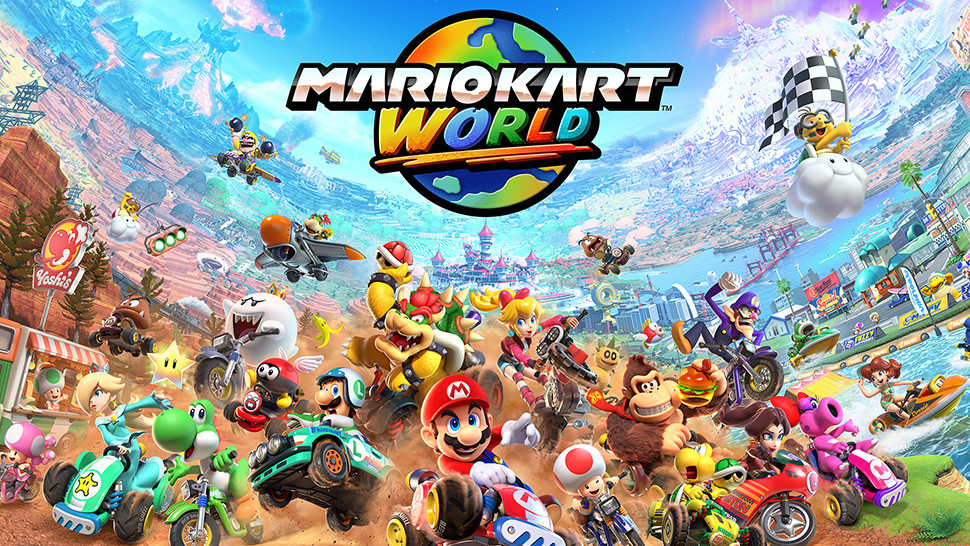Persona 5 Review

 By Kevin Mitchell | Apr 7, 2017
By Kevin Mitchell | Apr 7, 2017
It has been almost five years since I spent many nights enthralled in the world of Persona 4: Golden, but after 70+ hours in Persona 5, I still can't get enough. The game exudes style and charm, with colorful visuals that pop off the screen. While the game originally released in 2016 in Japan, it has finally hit the shores of North America, now utilizing the power of the PlayStation 4 Pro. Even so, the game is just stunning, running on the PlayStation 4 thanks to engaging combat, deep RPG systems, and social features.
Players take on the role of a somewhat silent protagonist, dividing their time between normal high-school life and adventuring through dungeons in an alternate supernatural world called the Metaverse. Everyday life may see you answering questions while at school, studying at the local cafe, watching a movie, or anything else that teenagers spend their time doing. In the Metaverse, however, you and your friends attempt to steal the treasures hiding inside palaces of the corrupt and wicked.
One of the best aspects of Persona 5 revolves around the way the narrative progresses. Nothing feels rushed, although the opening few hours can feel quite slow, and you are given ample time to accomplish the tasks outlined in front of you. In fact, the Phantom Thieves start as a suspicious joke amongst the population, but you'll slowly gain a following by infiltrating palaces and altering the hearts of some of the vilest characters you'll ever interact with. In essence, the game revolves around these "heists" as your group must find a way to the treasure room and leave a calling card. While it might make the target aware of the immediate danger, the treasure won't manifest itself until you do so. What happens next is entirely up to you: how you handle the situation and if the target reforms their way or if their brain turns to mush. Once you start pulling off more elaborate heists, you'll gain access to additional individuals to recruit, and at the same time, your reputation around Tokyo vastly improves. All of the narrative reasons for the heists are well-established and cover a broad range of reasons, from abusing students to perjury and the concept of free will.
When you aren't exploring the Metaverse, you must manage your teenage student life in Tokyo. One of the first things that stuck out to me was the students going to school on Saturday—a concept unfamiliar for those in North America. One thing that the past games have in common is not allowing you to use all the time available to you. Some days you may have the option to do anything you want after school, but not let you do anything outside of sleep in the evening. This restriction is quite constricting, and I can't see it serving any purpose but to keep the story moving forward. Eventually, you can bypass the restriction, but it depends on how you play the game. With that said, if you are new to the series, you are only able to do one or two things a day. It's here that you can improve relationships or increase your stats by studying, watching movies, playing video games, training, etc. You can also spend your time listening to the latest gossip or learning more about the supporting characters in the game world.
The way it works, you aren't forced to focus on things that don't interest you. Early on in the game, you are guided to getting a part-time job to earn additional money, and at the same time, it may increase some of your stats. After my first day, I never went back, as I believed I could better spend my free time working on my relationships and upgrading the stats that are most important to how I want to play the game. Hanging out with your friends can have benefits as well, increasing the bond between the two of you, which in turn increases confidence ranks. These bonuses can provide benefits that are quite rewarding, both in your social life and the Metaverse.
The combat system in Persona 5 still revolves around a turn-based system, and you'll be spending a lot of your time battling inside of palaces. Each character can use their traditional melee weapons to attack, a ranged weapon to down flying creatures, and summon their Persona. Supporting characters are limited to a single Persona, but you can combine and capture multiple creatures and turn them into more powerful Personas. Persona attacks are powerful special abilities that can have either offensive or defensive bonuses. In traditional terms, it's like using magic or spells in other role-playing games. These moves cost either a set amount of SP (mana), while some cost varying amounts of health. If you exploit an enemy's weakness, you can choose to receive additional money, an item, or transform it into a Persona using a negotiation-type system. Choosing the right type of response will reward you with a new Persona while picking the wrong one will allow your foe to escape. Of course, if you don't care for any of those options, you can perform an all-out attack.
Unlike previous entries in the series, the dungeons in Persona 5 are not procedurally generated. Instead, the dungeons will remain the same for all players, but exploring the Metaverse outside of the palaces is randomly generated. Some new dimensions have been added to the dungeons, letting you jump on top of objects, allowing you to traverse across railings or enter windows high above the ground floor. You can also hide behind furniture and walls, allowing you to ambush roaming enemies. Since you are trying to pull off impossible tasks in a heist-type fashion, you must not alert the palace guards. If you are seen too often, your target will become alerted to your presence, and you'll have to restart.
Simply Put
With Persona 5, Atlus has outdone themselves, crafting a thrilling narrative while balancing the social life of the characters. The world is designed with rich and vibrant colors, and although the dungeons are no longer procedurally generated, I've enjoyed exploring them with my ragtag group of thieves. There are an infinite number of possibilities thanks to the open-ended nature of players choosing different things to focus on in their characters' social lives. If you ever feel overwhelmed, you can always check the Thieves Guild, letting you see what other players did at that precise moment. Persona 5 is certainly a stylish RPG, and while the opening few hours are slower than I would like, by the time you are freely able to explore the first and second palace, you are well accustomed to the game's mechanics.
Note: Persona 5 was reviewed on PlayStation 4. A digital copy of the game was provided by the publisher/developer.




